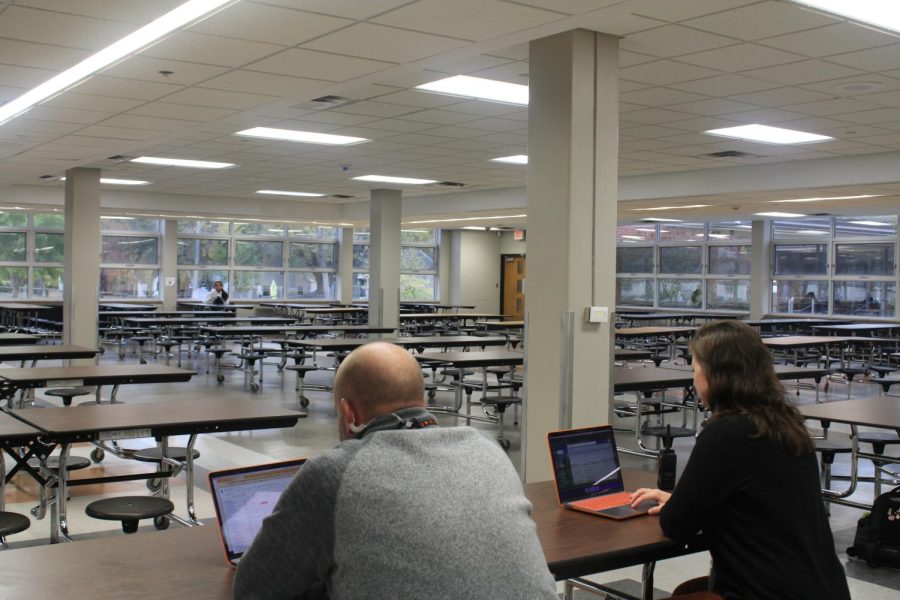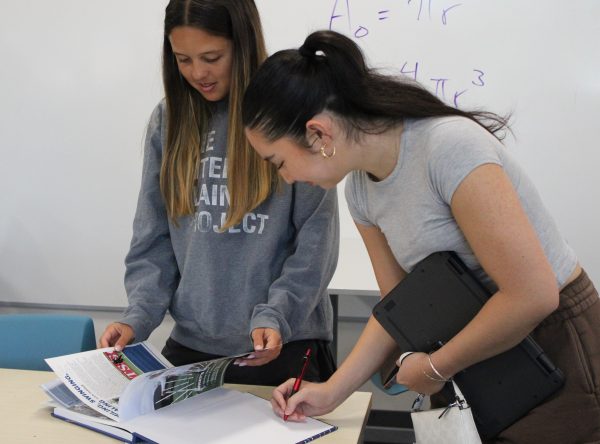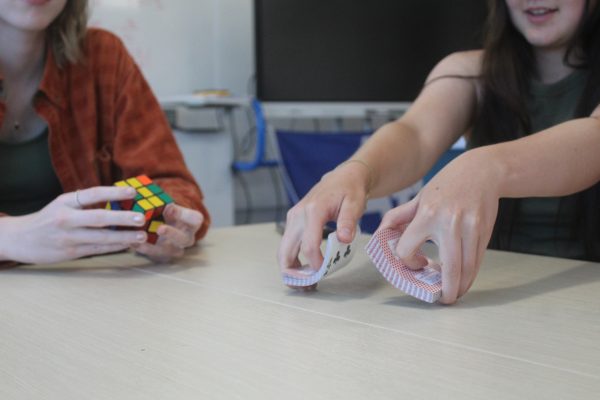Not so saved by the bell
New detention policy causes dilemma
Advisors monitor after-school detention in the cafeteria Oct. 13. Students are assigned to a detention after multiple unexcused absences or tardies.
October 14, 2022
Like the iconic movie, “The Breakfast Club,” Park is bringing back after school detention for students. According to the administration, three tardies or one absence a day will result in students receiving detention. This new disciplinary action has become a catalyst for discussions across the student body. A majority of The Echo Editorial Board believes that detention just isn’t the way to go.
Attendance is an issue for most high schools, however, recent attendance rates have taken a hit. Park has done many things to address this issue, such as hall sweeps and calls home. Detention is the newest plan to combat this problem, yet there are some big issues. The Board pointed out the failure to provide transportation for students. Since detention occurs after school, there is no busing available for kids who may need it. This also causes an issue with pickup times, as students who would normally get a ride home at 3:15 p.m. will now be left behind. The school is currently doing nothing to provide transportation for students in detention.
The Board also pointed out the burden detention puts on staff and students. Park already struggles to staff teachers to run study halls throughout the day, let alone get staff to advise detention. Additionally, many students have jobs after school, and may not be able to get their shifts covered. Yet, if you miss a detention, another one will be added and if you miss two, that’s a suspension. The Board brought up lunch detention as a solution, but staffing and location in the building still present issues. The current execution of detention lacks flexibility and consideration of many possible issues that may arise. This makes The Board question if detention is actually sustainable.
Moreover, The Board called whether or not detention is successful in preventing absences into question. Although it’s a bit early to say, many students feel as though detention serves as a punishment rather than a preventative measure. The Board has seen students purposefully trying to get detention or even just go for fun. Chronically absent students seem unphased and would rather go to detention than class. It is clearly not doing enough to prevent kids from skipping class, so what’s its purpose?
Despite this, there are still a few solutions. The Board discussed a personalized attendance plan for students with a large number of absences. Focusing on the individual student can help pinpoint the root of attendance issues and create a solution for each student. The Board also voted with 18 for and 3 against tally that the main goal of students should be to encourage their peers to get to class. It is important to hold not only oneself accountable but to also hold friends to the same standard.












